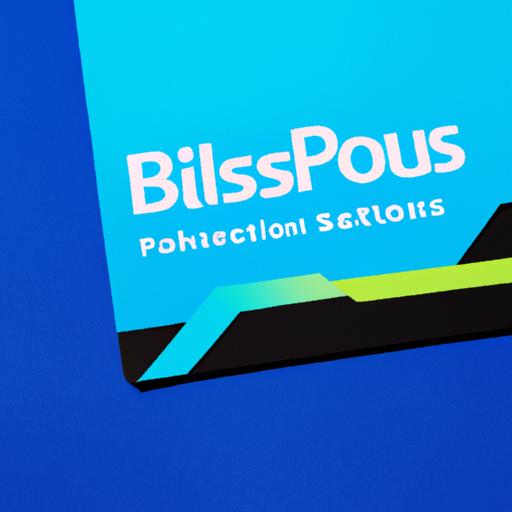Debt Consolidation for Business: Streamlining Finances for Success

debt consolidation for business
Introduction: Understanding the concept of debt consolidation for businesses
Are you a business owner struggling to manage multiple debts? Is your financial well-being hindered by high interest rates and complex repayment schedules? If so, debt consolidation for business might be the solution you’ve been searching for. In this article, we will delve into the world of debt consolidation, exploring its benefits and importance in revitalizing your business’s financial stability.
Importance and benefits of debt consolidation
Debt consolidation is the process of combining multiple debts into a single, manageable loan, typically with a lower interest rate. It provides businesses with an opportunity to simplify their financial obligations and regain control of their cash flow. By consolidating debts, businesses can streamline their repayment process, reduce interest expenses, and potentially improve their credit score.
One of the key advantages of debt consolidation is the ability to merge various debts, such as credit card bills, business loans, or lines of credit, into a single monthly payment. This simplification not only eases the administrative burden but also helps businesses allocate funds more efficiently. With a consolidated loan, you’ll no longer need to juggle multiple due dates, making it easier to stay organized and avoid missed payments.
Moreover, debt consolidation often presents an opportunity to secure a lower interest rate. By negotiating with lenders or opting for specialized consolidation loans, businesses can potentially reduce the overall cost of borrowing. This can translate into substantial savings over time, allowing businesses to allocate more resources towards growth and investment.
In conclusion, debt consolidation for business offers an effective strategy to regain financial control and simplify debt management. By merging multiple debts into a single loan with a potentially lower interest rate, businesses can streamline their repayment process and allocate funds more efficiently. In the following sections, we will explore the factors to consider before opting for debt consolidation, different consolidation options available, and the step-by-step process to successfully consolidate your business debts. Let’s dive deeper into this transformative financial solution.
Factors to Consider Before Opting for Debt Consolidation
Assessing the financial situation of the business
Before embarking on the journey of debt consolidation, it is crucial to have a comprehensive understanding of your business’s financial standing. Take a close look at your income, expenses, and existing debts. Evaluate your cash flow and determine if you have the means to handle the consolidated loan repayment comfortably. By analyzing your financial situation, you can ensure that debt consolidation is a suitable option for your business.
Understanding the types of debts eligible for consolidation
Not all debts can be consolidated, so it’s important to identify the types of debts that are eligible for consolidation. Generally, most unsecured debts like credit card debts, business lines of credit, and personal loans can be consolidated. However, secured debts such as mortgages or auto loans might not be eligible. Understanding which debts can be consolidated will help you make informed decisions and avoid wasting time on ineligible debts.
Evaluating the business’s credit score and eligibility criteria
Lenders consider the creditworthiness of a business when approving consolidation loans. Therefore, it is essential to evaluate your business’s credit score before applying for debt consolidation. A higher credit score enhances your chances of securing favorable terms and lower interest rates. Additionally, familiarize yourself with the eligibility criteria set by lenders. Some may require a minimum revenue threshold, a certain number of years in operation, or specific documentation. Being aware of these criteria will help you identify lenders that align with your business’s qualifications.
By considering these factors, you can determine if debt consolidation is the right path for your business. Assessing your financial situation, understanding eligible debts, and evaluating your credit score and eligibility criteria are crucial steps to ensure you make an informed decision. In the next section, we will explore different options for debt consolidation, empowering you to choose the approach that best suits your business’s needs.
Exploring Different Debt Consolidation Options
When considering debt consolidation for your business, it’s essential to explore the various options available. Each option comes with its own set of advantages and considerations. Let’s take a closer look at some popular debt consolidation options:
Traditional bank loans for debt consolidation
Traditional bank loans are a common choice for debt consolidation. These loans are typically offered by banks and financial institutions, providing businesses with a lump sum to pay off their existing debts. Bank loans often come with competitive interest rates and flexible repayment terms. However, they may require collateral or a strong credit history, making them more suitable for businesses with established financial stability.
Business credit cards and lines of credit
For businesses with smaller debt amounts, utilizing business credit cards or lines of credit can be an effective debt consolidation option. By transferring balances from high-interest credit cards or using a line of credit, businesses can consolidate their debts and potentially benefit from lower interest rates. However, it’s crucial to carefully review the terms and conditions, as credit cards and lines of credit may have higher interest rates in the long run.
Peer-to-peer lending platforms for consolidation
In recent years, peer-to-peer lending platforms have emerged as alternative options for debt consolidation. These platforms connect businesses directly with individual investors willing to provide loans. Peer-to-peer lending offers more flexibility in terms of eligibility criteria, potentially accommodating businesses with less-than-perfect credit scores. While interest rates may vary, it’s important to research and compare different platforms to ensure reputable and reliable lending sources.
SBA loan programs for debt consolidation
The Small Business Administration (SBA) provides loan programs specifically designed to support small businesses. These loans can be utilized for debt consolidation, offering favorable interest rates and extended repayment terms. SBA loans often require thorough documentation and a detailed business plan. However, they can be an excellent option for businesses seeking long-term financial stability and growth.
By exploring these different debt consolidation options, businesses can make informed decisions based on their unique financial situation and goals. It’s crucial to carefully assess the terms, interest rates, and eligibility criteria of each option to select the most suitable path towards consolidating your business debts. In the next section, we will walk you through the step-by-step process of debt consolidation, ensuring a smooth and successful journey towards financial freedom.
The Process of Debt Consolidation for Businesses
Debt consolidation may seem like a daunting task, but with a structured approach, you can navigate the process smoothly. Here, we will walk you through the essential steps involved in consolidating your business debts.
Gathering all necessary financial documents
To kick-start the debt consolidation process, gather all relevant financial documents. This includes a comprehensive list of your existing debts, such as credit card statements, loan agreements, and outstanding balances. Additionally, collect your business’s financial statements, tax returns, and any other documentation that lenders may require to assess your eligibility.
Identifying suitable lenders or financial institutions
Once you have your documents in order, it’s time to identify suitable lenders or financial institutions that offer debt consolidation options for businesses. Research various lenders, considering factors such as interest rates, loan terms, and customer reviews. Aim to find a reputable lender who specializes in business debt consolidation and has a track record of providing favorable terms.
Applying for the debt consolidation loan
With your preferred lender in mind, it’s time to complete the application process. Fill out the necessary forms, providing accurate and up-to-date information about your business’s financial status. This may include details about your annual revenue, expenses, and the purpose of the loan. Be prepared to submit the required documentation alongside your application.
Reviewing and comparing loan offers
Once you’ve submitted your application, lenders will assess your eligibility and present loan offers. Take the time to review each offer carefully. Pay close attention to interest rates, repayment terms, and any additional fees or charges. Compare the offers side by side, evaluating the overall cost of the loan and its suitability for your business’s financial goals.
Finalizing the consolidation loan agreement
After thorough evaluation, you can select the most suitable loan offer and proceed with finalizing the consolidation loan agreement. Review the terms and conditions in detail, ensuring you understand all aspects of the agreement. Seek clarification from the lender if any doubts arise. Once you’re satisfied, sign the agreement, and prepare for the next phase of your debt consolidation journey.
By following these steps, you can successfully navigate the process of debt consolidation for your business. Remember, each stage requires attention to detail and a thorough understanding of your financial situation. Now that we’ve covered the process, let’s move forward to explore effective strategies for managing debt consolidation and ensuring long-term financial success.
Managing Debt Consolidation Successfully
Developing a comprehensive debt repayment plan
When embarking on the journey of debt consolidation for your business, it is crucial to develop a comprehensive debt repayment plan. Start by assessing the total amount of debt and prioritizing repayment based on interest rates and terms. By creating a structured plan, you can allocate resources effectively, ensuring that your debts are paid off in a systematic manner.
Creating a budget to ensure timely payments
To successfully manage debt consolidation, it is essential to create a budget that allows for timely payments. Take a close look at your business’s cash flow and expenses to determine how much you can allocate towards debt repayment each month. By setting aside a specific amount, you can ensure that payments are made on time, avoiding any additional penalties or interest charges.
Seeking professional help from financial advisors or consultants
Managing debt consolidation can be a complex process, especially for businesses with intricate financial structures. Consider seeking professional help from financial advisors or consultants who specialize in debt management. These experts can provide valuable insights, guidance, and customized strategies to ensure that your debt consolidation plan aligns with your business goals.
Strategies for improving cash flow and avoiding future debts
While debt consolidation provides a fresh start, it is important to take proactive steps to improve your business’s cash flow and avoid accruing new debts. Explore opportunities to increase revenue, such as diversifying your product offerings or implementing cost-cutting measures. Additionally, establish robust financial controls and regularly monitor your business’s financial health to prevent the accumulation of new debts.
By following these strategies, you can effectively manage your debt consolidation journey and set your business on the path to financial stability and growth. Remember, proper planning, budgeting, seeking professional advice, and implementing smart financial practices will pave the way for a successful debt consolidation experience.
Conclusion: Embrace Debt Consolidation for Business Success
In today’s competitive business landscape, managing debt effectively is crucial for sustainable growth. Debt consolidation for business presents a valuable opportunity to streamline finances, reduce interest expenses, and regain control of your company’s financial future. By consolidating multiple debts into a single, manageable loan, you can simplify your repayment process and potentially save money in the long run.
Through debt consolidation, businesses can eliminate the hassle of dealing with various creditors and due dates. Instead, you’ll have the convenience of a single monthly payment, making it easier to stay organized and ensure timely repayments. This newfound financial clarity allows you to focus on what truly matters – growing your business and pursuing new opportunities.
Additionally, debt consolidation often comes with the advantage of lower interest rates. By negotiating with lenders or exploring specialized consolidation loans, you can potentially secure a more favorable borrowing rate. This not only reduces the financial strain on your business but also frees up resources that can be redirected towards innovation, expansion, or hiring new talent.
However, it’s essential to approach debt consolidation with caution. Before embarking on this financial journey, thoroughly assess your business’s financial situation and evaluate your eligibility for consolidation. Understand the risks and potential impact on your credit score, and seek professional advice if needed.
In conclusion, debt consolidation for business is a powerful tool that can transform your financial standing. By consolidating debts, you simplify your repayment process, potentially reduce interest expenses, and pave the way for future growth. Remember, the path to financial stability begins with understanding your options and making informed decisions. Embrace debt consolidation as a strategic step towards a brighter and debt-free future for your business.
Now that you have a solid understanding of debt consolidation for business, you can confidently navigate the process and make informed decisions that align with your business goals. Take control of your financial future and embark on a journey towards a more stable and prosperous business.
Conclusion: So above is the Debt Consolidation for Business: Streamlining Finances for Success article. Hopefully with this article you can help you in life, always follow and read our good articles on the website: business.musictoob.com




